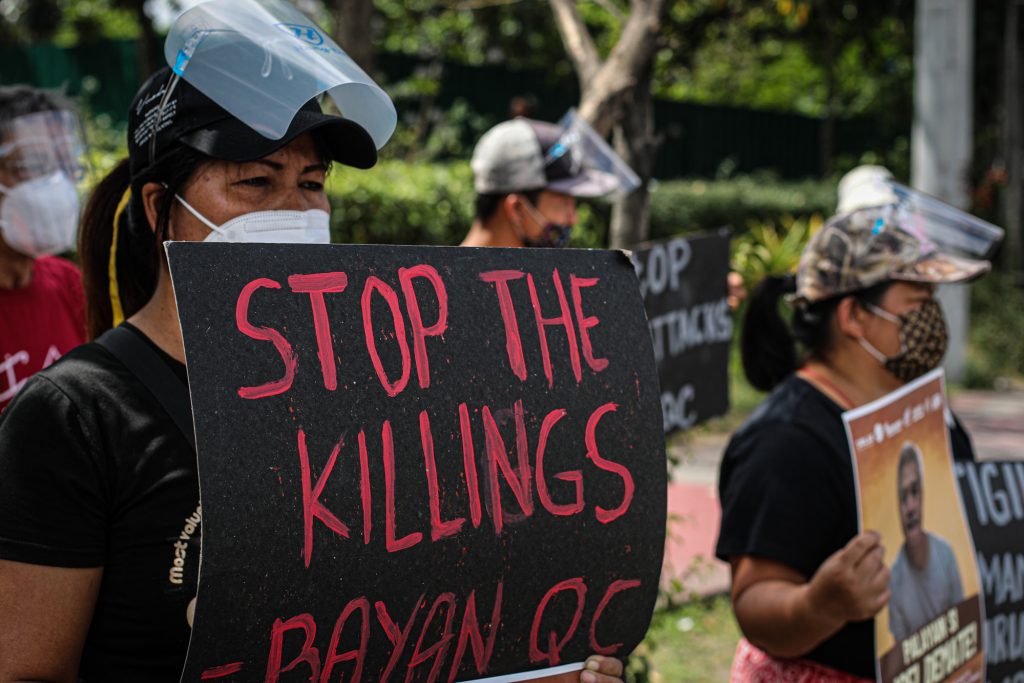
Faith-based groups in the Philippines denounced the spate of killings and arrests of activists in the country in recent weeks following President Rodrigo Duterte’s pronouncement to kill communists.
The inter-faith group “One Voice One Faith, One Nation” dubbed the killings as “barbaric acts” that have no place in a “rational” society that believes in the sanctity of human life.
Citing the killings of nine activists during police raids on March 7 in the outskirts of the capital, the group said that “by all logical measure … [the incident was] a fascistic targeting of social activists of open, legal, and recognized cause-oriented groups.”
“We denounce these unfathomable acts that disrespect life and violate human rights,” read the “One Voice” statement dated March 10. The Church leaders said the killings of activists was “an affront to the democratic rights of every Filipino.”
“Activism for social change seeks to address injustices and inadequacies in the systems, policies, and programs of governance,” read the statement. “State-sponsored killings of activists should never be made acceptable,” it added.
The statement was signed by Bishop Broderick Pabillo, apostolic administrator of the Archdiocese of Manila; Bishop Reuel Marigza, general secretary of the National Council of Churches in the Philippines; Obispo Maximo Rhee Timbang of the Iglesia Filipina Independiente; and Sister Rowena Pineda of the Sisters Association in Mindanao.
The group called for an independent investigation into the killings and arrests of activistst.
Earlier, Bishop Jose Coin Bagaforo of Kidapawan, head of the social action secretariat of the Catholic bishops’ conference, expressed alarm over the attacks on perceived leftist activists.
“What is more dangerous to my mind is the fact that seemingly, we have grown to be accustomed to tolerating this blatant disregard to the rule of law,” said the prelate in a separate statement.
He noted that “for almost five years,” the people seemed to have let political leaders “take command of our collective silence.”
“They interpreted our inaction and passive nature as explicit permission to stir unlawful behavior as long as it is covered by legal orders and memorandum,” said Bishop Bagaforo.
On March 7, policemen killed nine activists during a raid in what was supposed to be a rebel hideout.
The police claimed the operations were meant to arrest alleged communist New People’s Army rebels identified in search warrants issued by two Manila courts.
“The raids were apparent politically motivated killings that the police and military have sought to justify with unconvincing justifications that echo ‘drug war’ claims,” said Phil Robertson, deputy Asia director at Human Rights Watch.
The raids were part of what the government called Coplan Asval, a “simultaneous implementation of search warrants” by teams consisting of police and military units.
They occurred two days after Duterte urged law enforcement agencies to “kill” communists and to disregard human rights – a threat that he had made several times in the past.
The police said the raids were legitimate because weapons were found in the victims’ possession and those arrested allegedly fought back – a claim police frequently make to explain the killing of alleged drug suspects in the government’s “war on drugs.”
Using combined elements of the police and military to target individuals or groups alleged to be communist rebels, and raiding separate areas simultaneously, was earlier used on Negros island in the central Philippines.
Leftist activists in the Philippines have long been targets of the government’s counterinsurgency operations, which often involved targeted killings and which Human Rights Watch detailed in reports published in 2007 and 2011.
The government accuses these activists of being New People’s Army members or supporters, and makes no distinction between armed fighters and political activists, who are subjected to the often deadly “red-tagging.”
The UN Human Rights Council passed a resolution in 2020 seeking “technical assistance” and “capacity building” for the Philippines in the face of thousands of killings of drug suspects and activists by law enforcement during questionable police operations.
Source: Licas Philippines
0 Comments